Search Images
Browse Content (p. 1657)
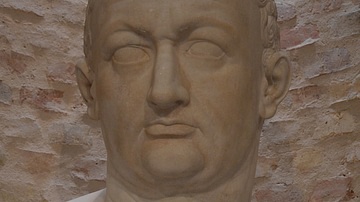
Image
Roman Emperor Vespasian, Neues Museum
Colossal bust of the emperor Vespasian, 69-79 CE, from Rome. (Neues Museum, Berlin)
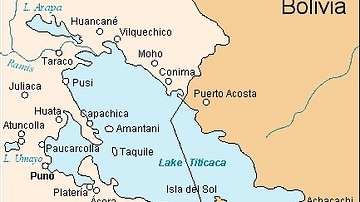
Image
Lake Titicaca
A map of Lake Titicaca in South America, located between Peru and Bolivia. For ancient Andean peoples the lake was a sacred site and considered the centre of the cosmos and place of original creation.
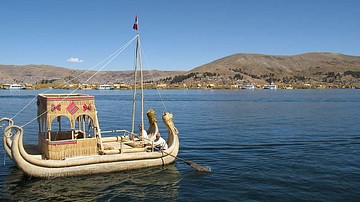
Image
Traditional Reed Raft, Lake Titicaca
A traditional totora reed raft on Lake Titicaca. For several pre-Columbian cultures, including the Incas, the lake was considered the centre of the cosmos and place of creation.
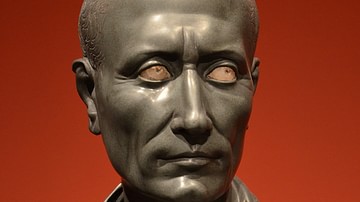
Image
Posthumous bust of Caesar
The so-called Green Caesar, a posthumous bust showing Julius Caesar as a statesman dressed in a toga. Being idealised in contrast to earlier Caesar portraits, this portrait was adapted to the taste of the early Imperial Age. (Altes Museum...
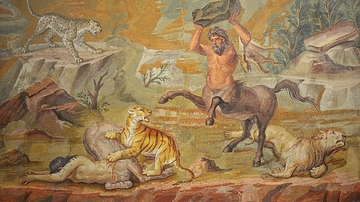
Image
Centaur, Roman Mosaic
Roman mosaic found at Hadrian's Villa depicting a pair of centaurs fighting wild cats, c. 130 CE. The mosaic is made of thousands of small, closely set tesserae (1-2 millimiters) called "opus vermiculatum." (Altes Museum, Berlin, Germany.)
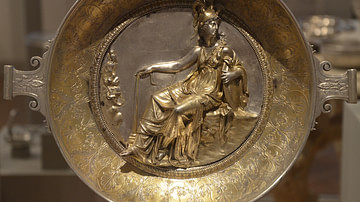
Image
Minerva Silver Cup
The so-called Minerva Bowl, a silver cup from the Hildesheim Treasure (Germany), the largest collection of Roman silver found outside the imperial frontiers, 1st century BCE - 1st century CE (Augustan period). (Altes Museum, Berlin)
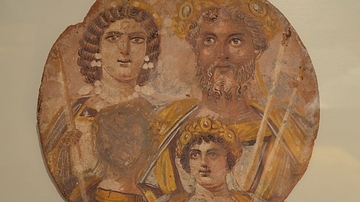
Image
Severan Tondo
Tondo showing the Severan dynasty: Septimius Severus with Julia Domna, Caracalla and Geta, whose face has been erased, probably because of the damnatio memoriae put against him by Caracalla, from Djemila (Algeria), circa 199-200 CE. (Neues...
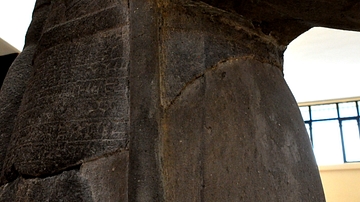
Image
Statue of Shalmaneser III, side view (left)
Statue of the Assyrian king Shalmaneser III, son of Ashurnasirpal II, grandson of Tikulti-Ninurta. The inscriptions on the statue give a brief account of the king's genealogical titles and characteristics. Basalt, from Assur, neo-Assyrian...
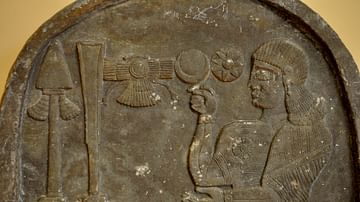
Image
Stele of Bel-harran-beli-usur, close-up
Bel-harran-beli-usur was a high palace official (chamberlain) during the reign of the Assyrian kings Shalmaneser IV (782-773 BC) and Tigleth-Pileser III (744-727 BC). He built a city and a large temple to the west of Nineveh. The stele features...
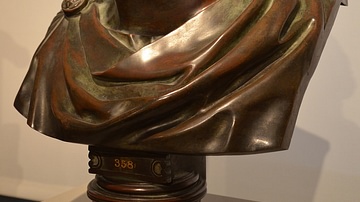
Image
Green Basalt Bust of Hadrian
Bust of Hadrian in dark green basalt, 120 - 130 CE. (Altes Museum, Berlin)